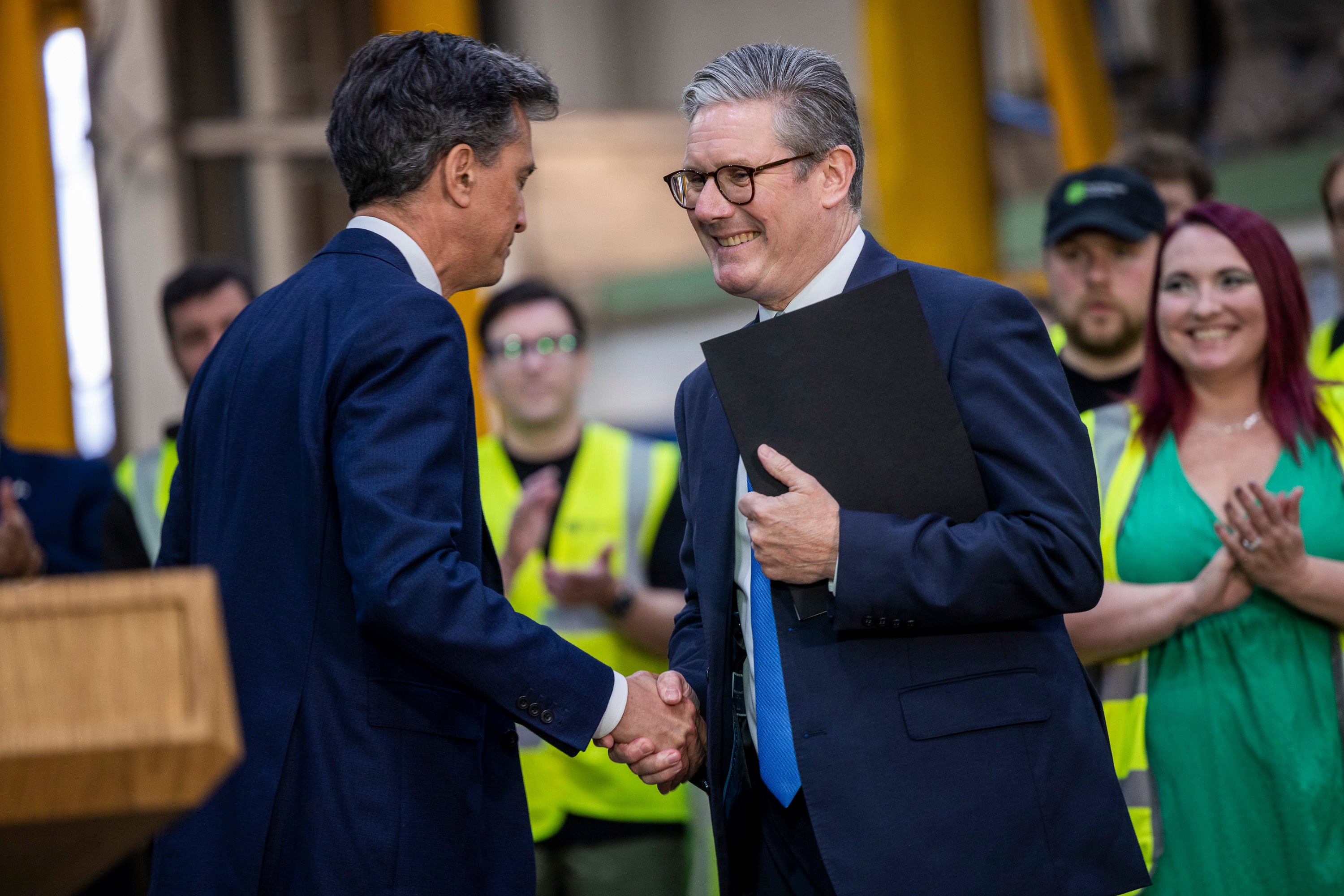Is public ownership back in fashion under Labour?
The new government’s plans for a state energy company and renationalised rail operators are an adjustment, not a revolution, writes John Rentoul


Keir Starmer and Ed Miliband have unveiled the creation of GB Energy – the publicly owned clean power company that Labour promised in its manifesto, “to cut bills for good and boost energy security”.
The prime minister said the new company reflects “a fundamental belief that we should own and make things in Britain”. And the energy security and net zero secretary said: “Great British Energy comes from a simple idea – that the British people should own and benefit from our natural resources.”
As Louise Haigh, the transport secretary, has already announced plans to renationalise the railways, it seems that the idea of public ownership is back in fashion. Indeed, one government aide has been quoted as saying that GB Energy will “prove the case for 21st-century modern public ownership”.
So what will Labour nationalise?
Actually, not much. GB Energy is not even going to generate any energy. Despite the manifesto saying it will “deliver power back to the British people”, it will essentially be a public investment vehicle. It will “invest in energy projects alongside the private sector, helping get them off the ground”, “lead projects through development stages to speed up their delivery”, and “support local energy generation projects through working with local authorities”.
Meanwhile, Haigh published a bill last week that would ban any new private rail franchises, while confirming that existing franchises would be taken back into public ownership when they expire. The first is likely to be Avanti West Coast, which expires in 2026, although it could be taken over earlier for poor performance.
This will make little difference in practice, however, as the track is already run by Network Rail, a government-owned company, and the train operating companies were heavily subsidised during the pandemic. Four English franchises are currently under government control: LNER, Southeastern, Northern and TransPennine Express, along with Transport for Wales and ScotRail.
The Labour manifesto also promised to “lift the ban on municipal ownership” of bus services. Finally, it is possible that the government may be forced to step in to take control of Thames Water, the privatised water company that is close to going bust.
Didn’t Starmer promise more than that?
Keir Starmer was elected Labour leader in 2020 on a programme that included this promise of wider public ownership: “Public services should be in public hands, not making profits for shareholders. Support common ownership of rail, mail, energy and water.”
However, he backed off those commitments, except the first one, rail, saying that the economic situation had changed and that he could not justify the expense of compensating shareholders.
This was the latest “zig” in Labour’s zigzag on the issue since Tony Blair ditched the party’s commitment to nationalisation in 1995.
Shortly after he became leader, Blair persuaded the party to abandon the old Clause IV of its constitution, dating from 1918, which set out its aim: “To secure for the workers by hand or by brain the full fruits of their industry and the most equitable distribution thereof that may be possible upon the basis of the common ownership of the means of production, distribution and exchange...”
Blair argued that public ownership was neither efficient nor equitable and urged the party to focus on “what works”.
In government, Labour ended up nationalising major British banks when Gordon Brown as prime minister led a rescue of the financial sector after the crash in 2008, but the government did not use its shareholdings to dictate the banks’ commercial policies and eventually sold its stakes back to the private sector.
When Jeremy Corbyn was elected Labour leader in 2015, he promised to nationalise everything on Starmer’s 2020 list, although he never sought to restore the old Clause IV of the party’s constitution.
Now Starmer has gone most of the way back to Blair’s position – but with a few slogans and pragmatic adjustments as a gesture towards those parts of public opinion for whom the idea of public ownership may be more appealing than the reality.






Join our commenting forum
Join thought-provoking conversations, follow other Independent readers and see their replies
Comments